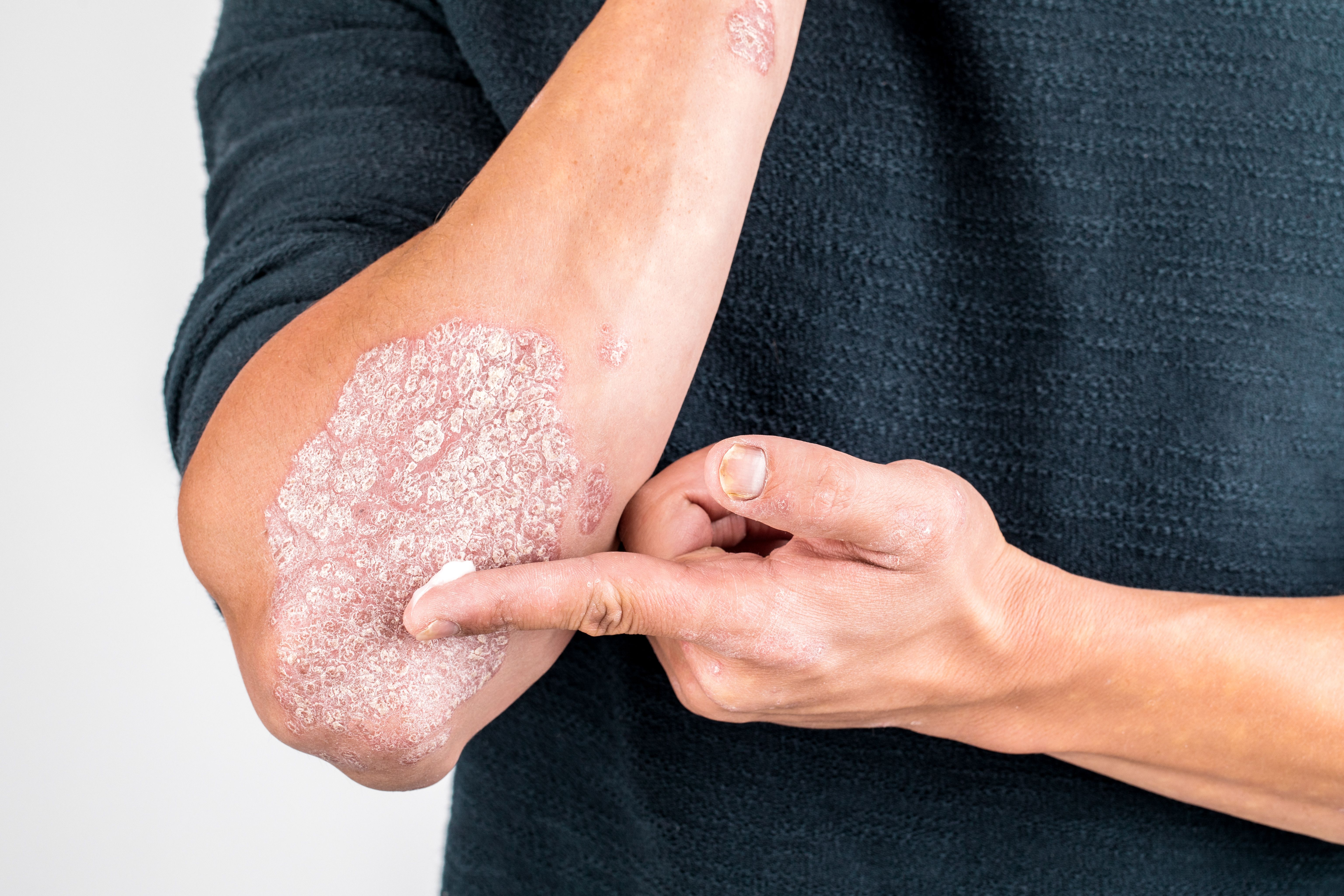- Case-Based Roundtable
- General Dermatology
- Eczema
- Chronic Hand Eczema
- Alopecia
- Aesthetics
- Vitiligo
- COVID-19
- Actinic Keratosis
- Precision Medicine and Biologics
- Rare Disease
- Wound Care
- Rosacea
- Psoriasis
- Psoriatic Arthritis
- Atopic Dermatitis
- Melasma
- NP and PA
- Skin Cancer
- Hidradenitis Suppurativa
- Drug Watch
- Pigmentary Disorders
- Acne
- Pediatric Dermatology
- Practice Management
- Prurigo Nodularis
- Buy-and-Bill
Article
Changing perception increases medication adherence
Author(s):
Fear associated with perceived pain from injectable biologics has been shown to be successfully addressed by employing anchoring bias interventions, researchers report in JAMA Dermatology.
“Anchoring is the tendency for humans to make judgments relative to the first piece of information presented. Since psychological anchors can be arbitrary, resetting the anchor may be a potential approach to help patients overcome fear of injection.
- Elias Oussedik, et al. JAMA Dermatology. September 2017
Fear associated with perceived pain from injectable biologics has been shown to be successfully addressed by employing anchoring bias interventions, researchers report in JAMA Dermatology.
“Biologic injectable medications for psoriasis are highly effective drugs; however, drugs do not work in patients who do not take them,” said the study’s lead author Elias Oussedik, BSc, a clinical dermatology research fellow at Wake Forest School of Medicine in North Carolina.

Elias Oussedik
Fear of injections is a key deterrent in medication adherence. This fear may be based on psychological anchors -meaning that a patient may render a judgment based on limited information.
“Since psychological anchors can be arbitrary, resetting the anchor may be a potential approach to help patients overcome fear of injection,” Oussedik et al. wrote.
“We made the once monthly injection seem like it was a bargain in terms of the number of injections needed. The objective number of injections did not change, but the perception of that number changed dramatically,” Oussedik said.
Recasting the anchor in a more favorable light could be a potential approach to compliance so Oussedik and colleagues conducted a small study of 100 adult patients with psoriasis who had never before been prescribed an injectable medication. The patients were randomized to a control or intervention group. The intervention group was asked to rate their willingness to start a once-daily injectable medication, then they were asked to rate their willingness to start a once-monthly injection. The control group was asked only about their willingness to start a once-monthly injection.
Willingness was ranked on a one to 10 scale, with one being not willing and 10 being very willing.
In the intervention group, which was anchored to a once-daily injectable, patients were much more willing to start a once-monthly regimen (median 7.5 score) compared to the control group which had no choice other than the monthly injection (median 2.0 score).
“We were surprised how unwilling patients were to consider a once-a-month injectable medication for their psoriasis. After all, these drugs are some of the best treatment options for psoriasis and are mostly hassle-free,” Oussedik said in an interview with Dermatology Times.
“Psychological tools, such as anchoring which is widely used in commerce, can be put to use in medical decision-making to improve patient outcomes,” he said.
A commerce example of anchoring cited by the authors is when a $500 product (the anchor) is marked down to $100 as opposed to the product being offered at $100 to begin with. The markdown appears to be a much better value to the consumer.
In medicine, psoriasis patients who graduate from prescribed prefilled syringes to an autoinjector frequently report greater pain with the autoinjector. By comparison, patients who start on an autoinjector, without ever having received a prefilled syringe, rarely complain about pain.
However, ethics is an important consideration for anchoring interventions because they “may be considered manipulative,” Oussedik states. “Purposefully steering a patient’s decision toward a particular direction may be seen as a way of mitigating a patient’s autonomy, even if it is in their best interest.”
The authors believe the phenomenon of anchoring might be employed to influence patient decisions about safety or efficacy. Implementing anchoring as part of a complete treatment education program may prove an extremely low-cost, beneficial intervention, the authors stated.
Oussedik continues to consider “other psychological principles ingrained in behavioral economics and how they can be applied to improve patient outcomes.”
REFERENCE:
Elias Oussedik, Leah Cardwell M.D., Nupur Patel, Omobola Onikoyi, Steven Feldman, M.D., Ph.D. “An anchoring-based intervention to increase patient willingness to use injectable medication in psoriasis.” JAMA Dermatology. September 2017 research letter. DOI:10.1001/jamadermatol.2017.1271






